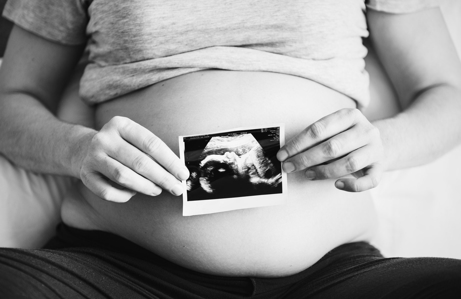 It’s far from an ideal situation, but the reality is that there are times when marital disarray comes to a head while one spouse is pregnant. If you find yourself in this situation, you’re likely wondering how pregnancy will affect the divorce process, or if you’re even allowed to get divorced while expecting a child in Oregon.
It’s far from an ideal situation, but the reality is that there are times when marital disarray comes to a head while one spouse is pregnant. If you find yourself in this situation, you’re likely wondering how pregnancy will affect the divorce process, or if you’re even allowed to get divorced while expecting a child in Oregon.
The short answer to this question is:
Yes. You are definitely allowed to file for divorce in Oregon while pregnant. Because Oregon is a pure “no-fault state” – meaning that the only grounds allowed for getting a divorce is irreconcilable differences – whether or not you are pregnant is irrelevant in determining if you can file for a divorce.
That being said, there are certain divorce processes that pregnancy could disqualify you from. For example: Oregon offers a simplified divorce option, known as summary dissolution, for spouses interested in a relatively quick and simple divorce process. To qualify, spouses must have been married for less than 10 years, own no real estate, have personal property valued no more than $30,000 or debts totaling no more than $15,000, and are not seeking alimony. Additionally, the spouses must have no minor children, nor be pregnant. Unfortunately, pregnant spouses who would otherwise qualify for a summary dissolution are not eligible to apply for this option.
What Legal Issues Could You Run Into?
In general, the same rules apply when you apply for a divorce whether or not you are pregnant:
- Either you or your spouse will need to have lived in Oregon for at least six months before you can file.
- You will need to file a Petition for the Dissolution of Marriage at the county circuit court where you or your spouse live.
- You need to have your spouse legally served with a copy of the Petition for the Dissolution of Marriage and other necessary paperwork (unless you and your spouse together filed a co-petition).
The information you put on the petition is also similar (your demographic information, the names and ages of the children, what you are seeking from the divorce). You also need to declare whether or not you are pregnant.
This is where the process can become more complicated, because issues involving custody, parenting time and child support will likely need to be dealt with, which can take longer to resolve when there is an unborn child involved. The reason is pretty straightforward; custody, parenting time and child support cannot be determined by the court until after the child is born. In addition to this, resolving these issues also requires that paternity of the child be established, which further extends the proceedings. If the spouses cannot agree on paternity, then the court will have to decide.
 Under Oregon law, the husband will be presumed to be father if the child is born during the marriage or within 300 days of the termination of the marriage. However, he does have a right to challenge this presumption and try to convince the court that he is not the father. On the other hand, if the mother of the child knows that the husband is not father of the child and this is noted on the divorce petition, the court will likely not address matters such as custody, parenting time and child support.
Under Oregon law, the husband will be presumed to be father if the child is born during the marriage or within 300 days of the termination of the marriage. However, he does have a right to challenge this presumption and try to convince the court that he is not the father. On the other hand, if the mother of the child knows that the husband is not father of the child and this is noted on the divorce petition, the court will likely not address matters such as custody, parenting time and child support.
If the husband does challenge paternity, or if either party feels uncertain, a petition to the court can be filed requesting paternity be established by genetic testing. This can identify if the husband is the father and will give the court direction on how to move forward with custody and child support orders once the child is born. While a paternity test will give all parties needed insight, it can also delay the divorce process while the court waits for the results to be returned.
So, while you legally can get your divorce finalized while pregnant, you won’t be able to get factors regarding the child set into place until post-birth. When that time comes, if you want custody and support to be determined and legally binding, you’ll need to modify your judgement to address these matters—having paternity established, and thus having genetic evidence of who is responsible and needs to be involved in these decisions, will make the modification process possible.
Divorcing can be a stressful process no matter your age or how long you’ve been married, and adding a pregnancy to the mix can make any person feel overwhelmed. Before filing for divorce, it’s important to consider the fact that most divorces take anywhere form six months to a year, and some can take even longer. If you’re in the early stages of pregnancy when filing, you very well may be in your third trimester when going to court. Really analyze your position, you and your husband’s ability to compromise amidst emotional turmoil, and your ability to navigate stress before filing for divorce. If the possibility of going to court eight months pregnant seems implausible, it might be worth it to wait to file for divorce until after you’ve given birth. If the idea of staying in the marriage for another few months seems equally or more implausible, then take comfort in knowing that Oregon will not prohibit any mother from filing for divorce.
Pacific Cascade Legal understands that filing for divorce while pregnant could easily be one of the most stressful and emotionally tumultuous times in a person’s life. We have experience in seeing client’s through this hardship, and are here to offer not only legal aid, but personal advocacy for every person who trusts us with this task. Call us today at (503) 227-0200 to set up a consultation, and discuss your options, today.

